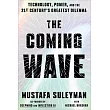Mario Tribaudino is a Full Professor in Mineralogy at the University of Torino, in the Earth Science Department. He completed his Ph.D. in Mineralogy and crystallography in 1989; he was then employed as researcher (since 1990) and associate professor (since 2001) at the University of Torino. In 2005 he moved to the University of Parma, where he served as faculty head in 2012, and deputy director of the Department of Physics and earth sciences, (2012-2016). In 2021 he returned to the university of Torino. At the beginning of his scientific career the research interest focussed to mineral physics, studying the thermoelastic and vibrational properties of rock forming minerals, mainly feldspars and pyroxenes. More recently the interest shifted to applied mineralogy and waste management topics, starting from the analytical and conceptual background of mineralogy and mineral physics to an application in civil engineering and environmental sciences. He is author of 120 papers in international journals and has been organizing several national and international schools and congresses.
Daniel Vollprecht studied Mineralogy at TU Bergakademie Freiberg, Germany, and graduated in 2008. He started his career at Graz University of Technology, Austria, and received his doctoral degree in Earth Sciences in 2013. Since then, he has been the leader of the Working Group "Mineral Wastes, Landfills, and Contaminated Sites", which recently changed its name to "Material-oriented WasteTechnology". His research focusses on the interaction between wastes and the environment, especially with leaching of heavy metals. He has conducted several national and international research projects e.g. on Landfill Mining (national project LAMIS (2013-2015) & EU project NEW-MINE (2016-2020)), mineralogy and leachability of steel slags (projects MiLeSlag (2016-2019) and MiLeSlag 2.0 (2019-2022)), in-situ remediation (projects ChromSan (2013-2015), LISA (2015-2019) and InnoBLA (2020-2022)) and metal recovery from waste waters (projects RECOMET (2014-2015) and RECOMET 2.0 (2015-2018)). In 2020 he received the "venia docendi" in Waste Technology for his Habilitation Thesis entitled "Exploration, Mobilization and Fixation of Constituents of Mineral Wastes, Landfills, Contaminated Sites and Waste Waters". Finally, he has authored more than 40 peer-reviewed publications at the intersection between waste management and geosciences and has been a scientific reviewer for various international journals from both fields.
Alessandro Pavese, graduated in Physics (1987), got a doctorate in Mineralogy & Crystallography in 1992. He served as researcher in Mineralogy with the University of Milan since 1992 to 2000, as Associate Professor up to 2005, and then as Full Professor. He is member of the University of Turin since September 2016.
In academy, he served as Earth Sciences Representative with the Sciences Faculty of the University of Milan, as Director of the Earth Sciences Department of the University of Milan and as Director of the Earth Sciences Department of the University of Turin.
In the scientific community, he was Member of the Neutron Diffraction Commission by ILL-laboratory (Committee 5A); Earth Sciences Representative by the Italian Society for Synchrotron Light (SILS); President of the Italian Society of Mineralogy and Petrology (SIMP); vice-President of the European Mineralogical Union (EMU).
He has been leader of more than 20 projects of applied Mineralogy, involving companies and public institutions. His research activity is devoted to mineral phenomenology at non-ambient conditions (high temperature, high pressure, high pressure and temperature, special chemical conditions), in processes occurring in nature or in industrial environments (waste management, ceramics, cement related materials). He was awarded the EMU Research excellence medal in 1999 and is junior member of the Turin Academy of Sciences.



 天天爆殺
天天爆殺  今日66折
今日66折 
























 博客來
博客來 博客來
博客來 博客來
博客來 博客來
博客來 博客來
博客來